No longer need we give people our phone number or email address. Why bother? Broadcasting it would be as redundant as watching the in-flight video that shows us how to buckle up, or wondering why our computers freeze. Our personal data is “out there” anyway, just a few clicks away, just a handful of the too-many bits of information floating around.
But not to worry. Chances are, facial recognition will soon supersede all other narratives regarding our identities. Invisibility will be the last posture of subversion.
Ahead of the curve is Nick Ace, a designer who works on a host of films, identities, and interactive projects. He has perfected a technique for hiding in plain sight. Six months ago he began to stick small black adhesive nametags all around town—on top of billboards, on the side of mailboxes, on escalator handrails, and on the base of lampposts. Only seven white letters—Nick Ace—in crisp Helvetica Neue 75 bold upper and lower case, an homage perhaps to Massimo Vignelli.
Twenty dollars for 250 stickers (the price goes down if you order more). He gave thousands of them to friends, who in turn pasted them randomly as they trekked about the city.
Nick gets calls, quite a few of them, from people who need someone to shoot a video or design a logo—people for whom the laconic tags make perfect sense, as does the terse message they get at nickace.com, where they are facetiously redirected to contact film director Rob Soucy, Nick’s best friend and frequent collaborator.
As a result of this furtive campaign, Nick’s indie practice is thriving, on top of his day job at the notorious New York design agency Collins, whose main clients include CNN, NBC, Microsoft, and the New York Knicks.
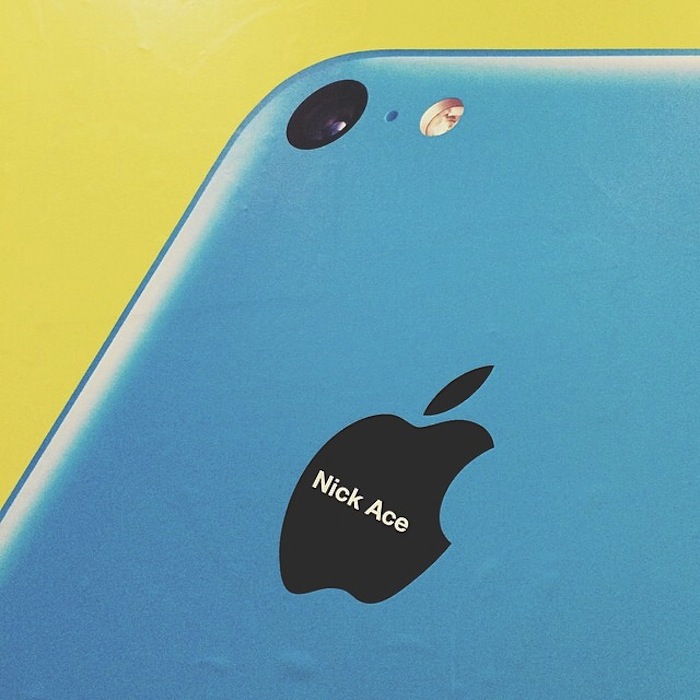
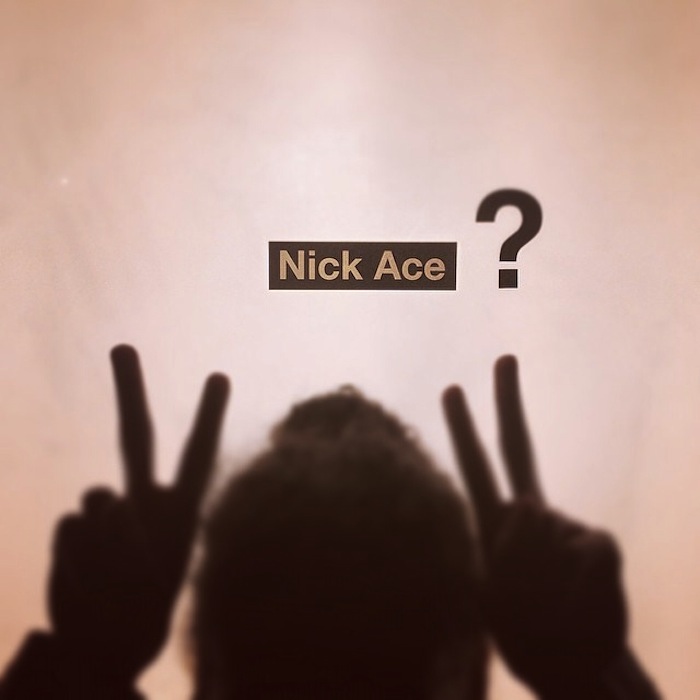
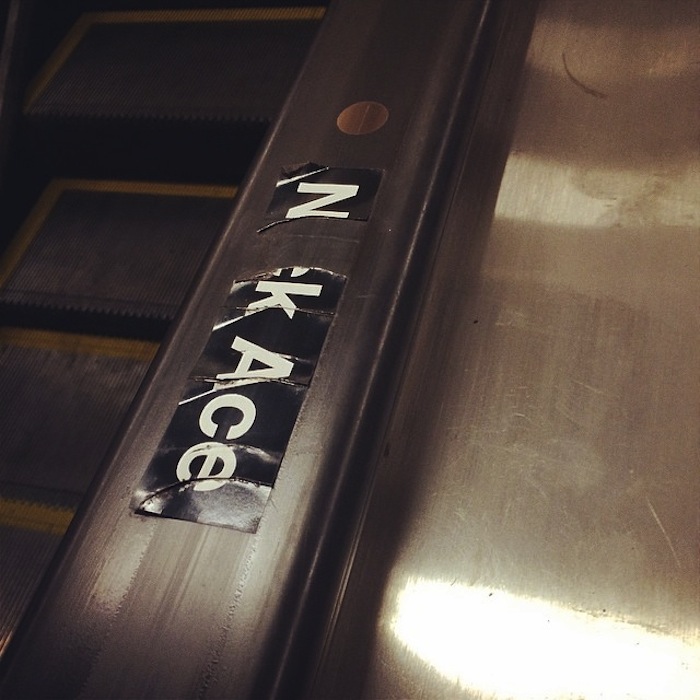
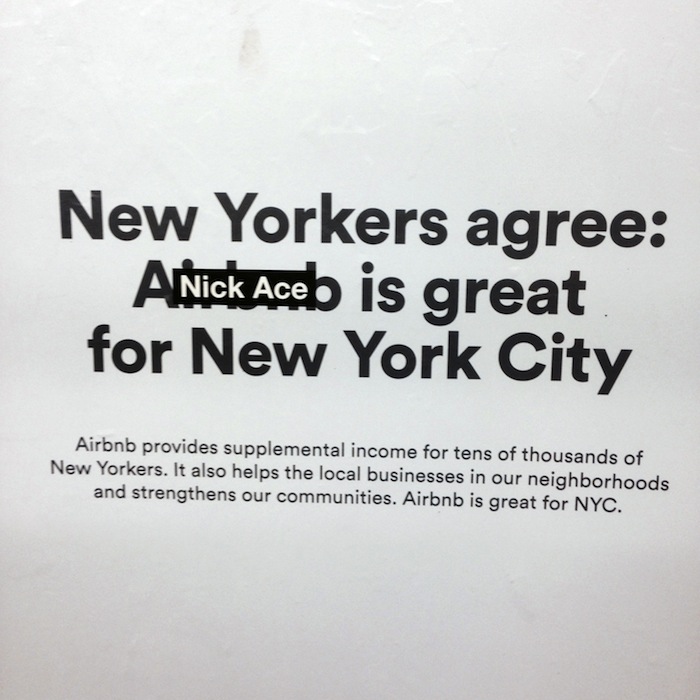
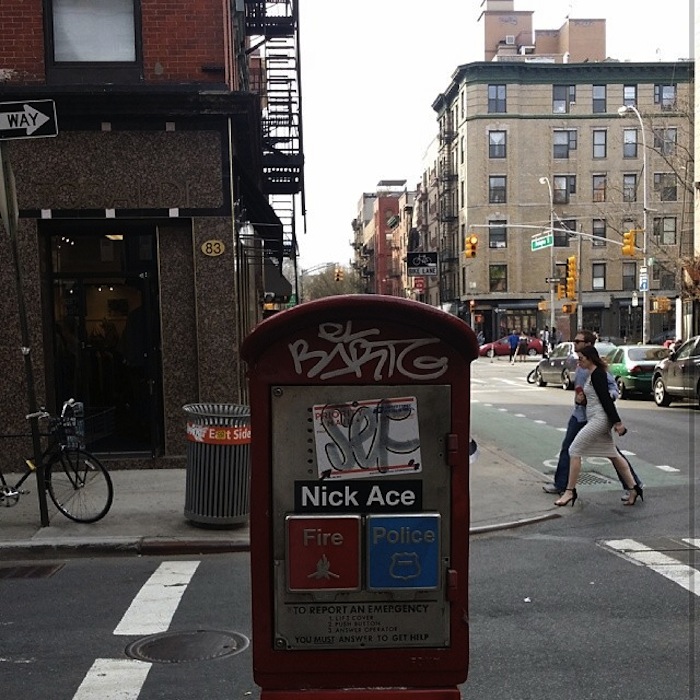
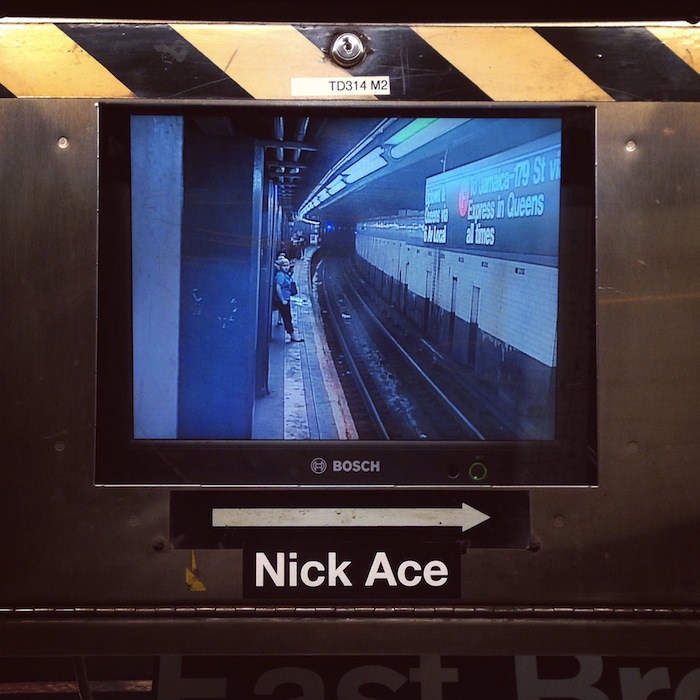
Photographs courtesy of Crissy Fletcher, Eleanore Pienta, Jonah Bayer, and Olivia Campana
